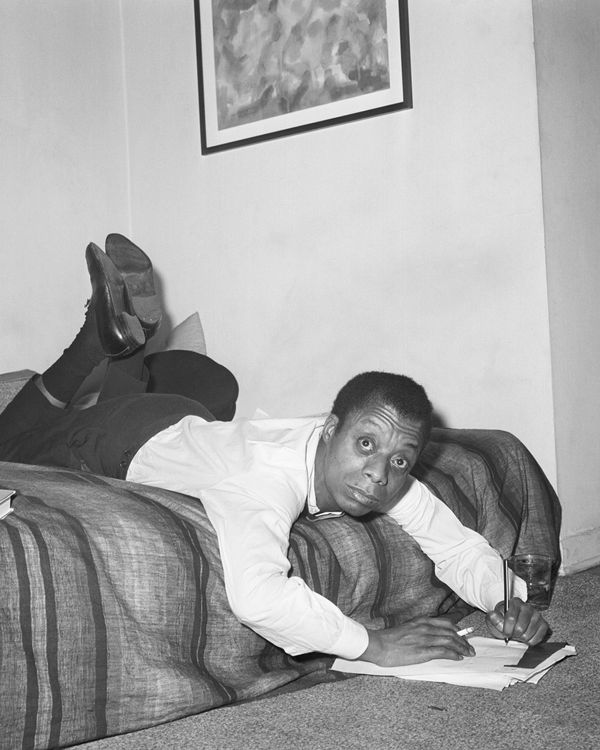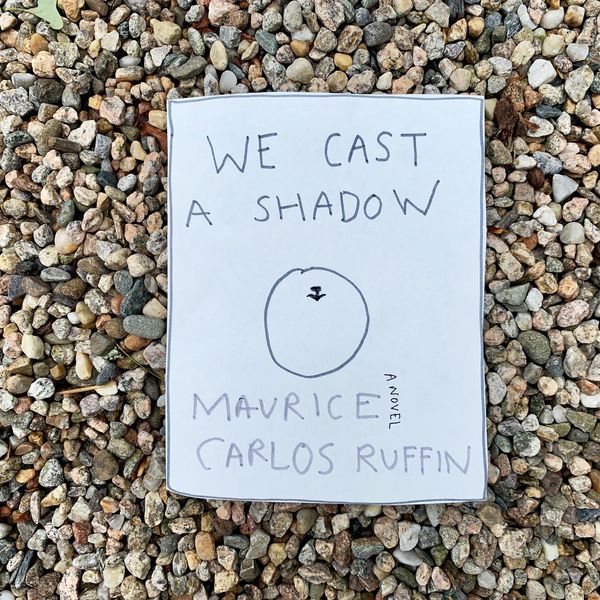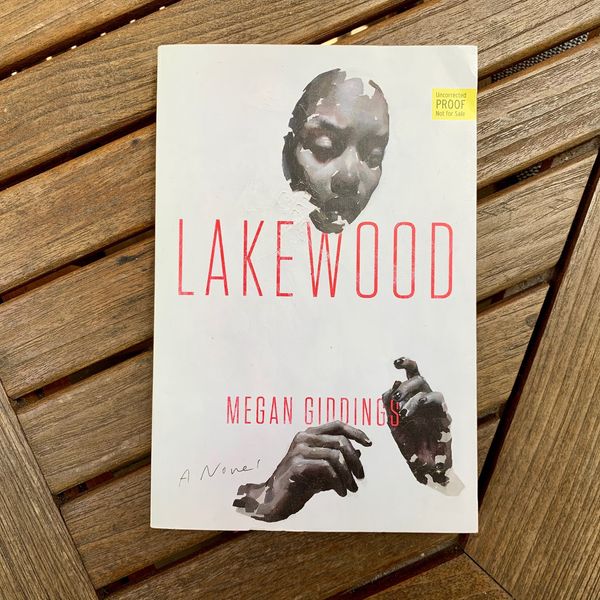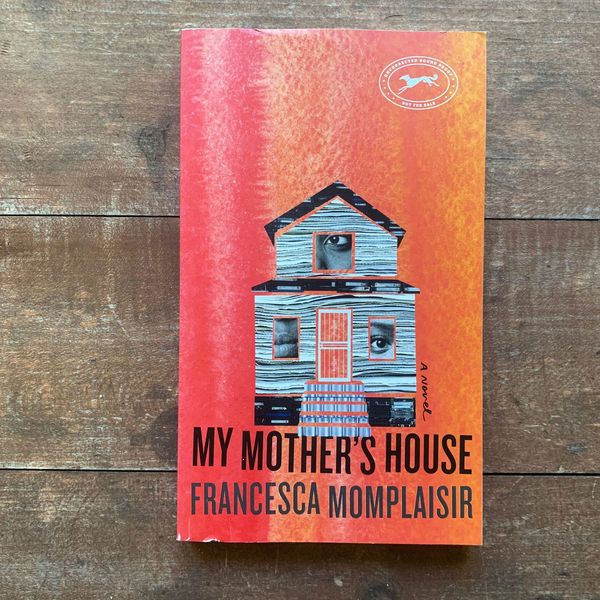
Recommending summer books at a time of national grief is like interrupting a funeral to ask the bereaved if they were aware that they can save 15 percent or more on car insurance. I won’t blame you if you’d like to file this away for another time — a time when escaping into a book feels more like a delight than an abdication. On the other hand, you may be yearning to carve out a moment for imaginative therapy, and dropping $25 on a set of bound pages is a reasonably cheap method of doing it. Either way, I wish you safety and solace.
We Cast a Shadow by Maurice Carlos Ruffin
Fiction, January 2019
First, I read this one digitally and didn’t have a copy to photograph, so above is a skilled re-creation of the cover. Second, you can forgive yourself if you don’t realize until 100 pages in that this book takes place in a dystopian alternate reality rather than our present one, as I did. There are many similarities. In the unnamed Deep South city where the novel takes place, there are museums and hospitals and basketball games. People drive minivans to drop their kids off at progressive schools. But also, certain things are different. Tanning salons are outlawed. A surgical process called “demelanization” — which narrows a person’s nose, thins his lips, lightens his skin, tints his eyes blue — has been invented and popularized.
The unnamed narrator works at a corporate law firm where he’s up for promotion against the firm’s other two black employees. (Only one will be chosen.) The narrator has advantages: a big brain, beautiful family, expensive education. He also has disadvantages: migraines, a weakness for white lies, and a semidependence on purple pills that he keeps in a Pez dispenser and which turn his nervous system “into a tangle of pleasurably twinkling Christmas lights.” Then there’s his son, Nigel, who was born with a troublesome birthmark on his eyelid. What started out looking like a speck of oregano grows over time and changes shape “from a rough circle to a wedge to a silhouette the shape of New Zealand or perhaps the Wu-Tang Clan symbol turned on its head.” Nigel doesn’t care about the splotch, but his father fixates on it. He gives his son lightening cream, dreams of paying an elite plastic surgeon to slice off the offender, fears that it will widen and merge with other birthmarks on Nigel’s body to form a reverse-Pangea of pigmentation.
The book is part workplace dramedy and part Margaret Atwood–style speculative fiction, with candy sprinkles of wicked comedy scattered across the whole cake. It also contains what might be my favorite description ever written about popping a sedative: “My esophagus lit up as that little elevator descended into my basement.” Beam me down, Scotty!
RIYL: Gary Shteyngart, gritting your teeth, Paul Beatty, Parasite, doing wicked things despite your better nature
Lakewood by Megan Giddings
Fiction, March 24
Lena Johnson needs money. The situation is this: Her mom is sick with a slippery ailment, bills of every size and variety are piling up, and Lena’s only job opportunity is dressing up as a blue corn chip for $9.25 an hour at a local fast-casual restaurant called Burrito Town. And then (spooky theremin soundtrack kicks in): She receives a mysterious letter in the mail on thick stock inviting her to participate in a series of research studies in exchange for housing, a stipend, and health insurance for her whole family. Lena’s first instinct is that it’s a scam. Her second is that the remote chance of legitimacy is worth a shot.
Off she goes to an anonymous building, where she is cloaked in comfortable gray clothes and subjected to experiments I will not spoil. Who is behind the “study”? Why are nearly all of the participants nonwhite? Is this a benevolent program or is it the Tuskegee experiment redux? What’s in those pills? Is that corn chip job still available?
The book’s themes are planted so ingeniously that — I’m trying to think of a metaphor here — reading the book is like running through a meadow and then pausing to glance down and finding yourself covered in burrs (themes) that you didn’t notice while you were running, and then going to sleep that evening and having a nightmare about burrs. As with any book that feels sizzlingly cinematic, I went through a V shape of emotions while reading it: Ooh, I bet they’ll make a movie of this → but what if a lame person directs it? → however, a cool person might direct it.
RIYL: The word plasma, Get Out, being driven to fantasies of murder-suicide by America’s health “care” “system,” instinctively fearing people who wield clipboards
My Mother’s House by Francesca Momplaisir
Fiction, May 12
The title of this novel may evoke doilies and bowls of potpourri, but do not be fooled — it is a book for people with a high threshold for unease. An alternative title could be Nightmare in Ozone Park. Lucien Louverture is a Haitian immigrant with narcolepsy and compulsive tendencies and demonic drives. In the mid-1970s, he leaves Port-au-Prince and settles his family in Queens, where they live in a neighborhood that has long sheltered cycles of upwardly mobile newcomers. Their house itself serves as one of the book’s narrators, and in fact makes a great one, which is not a sequence of words I expected to type when I started this job. Life is full of twists. It (the house) initially serves as a community center, with other immigrants gathering to play cards and secure loans and meet dates and eat food cooked by Lucien’s wife. But something wicked lurks in the basement …
Bit by bit, it becomes clear that Lucien is both a hardscrabble striver and a villain of Hannibal Lector proportions, with the striving and villainy forming a kind of double-helix of evil. The prose style is tough to describe — sometimes torrential and detailed, sometimes strategically simple. In any case, this one fits into the genre of “stay-up-all-night” books both because it is impossible to stop reading and also because it makes you scared to turn off the light. And it’s the author’s debut, too. Hardcore.
RIYL: Titus Andronicus (the Julie Taymor movie adaptation), Absalom, Absalom!, William Blake, Xam Wilson Carter’s Be-Bop, Re-Bop, vengeance
WHY DON’T YOU …
Envelop yourself in the TENDRILS of a secrets-drenched novel about identical twins?
Discover, to your considerable SHOCK and SURPRISE, that the best novel of 2020 was written 87 years ago?
Impale yourself on this account of domestic TERRORISM — but don’t take my word for it, this thing won a Pulitzer!
Dip a toe in the SHARK-INFESTED fashion waters with a memoir by (easily) the most fascinating person to ever work at Vogue?
Give FUTURE YOU a gift from PRESENT YOU by preordering Transcendent Kingdom?
Allow yourself to be GENTLY LADLED into rural Michigan life — a territory of farms and young marriages and domestic disharmony?
SUGGESTED PAIRING
Cut the engine on your Twitter consumption for a few hours and visit — or revisit — James Baldwin’s The Fire Next Time.
Every editorial product is independently selected. If you buy something through our links, New York may earn an affiliate commission.
*A version of this article appears in the May 25, 2020, issue of New York Magazine. Subscribe Now!
More From This Series
- Matrix and 9 Other Reads I Can’t Get Out of My Head
- The Listening House and 9 Other Reads I Can’t Get Out of My Head
- The Plot and 8 Other Reads I Can’t Get Out of My Head





